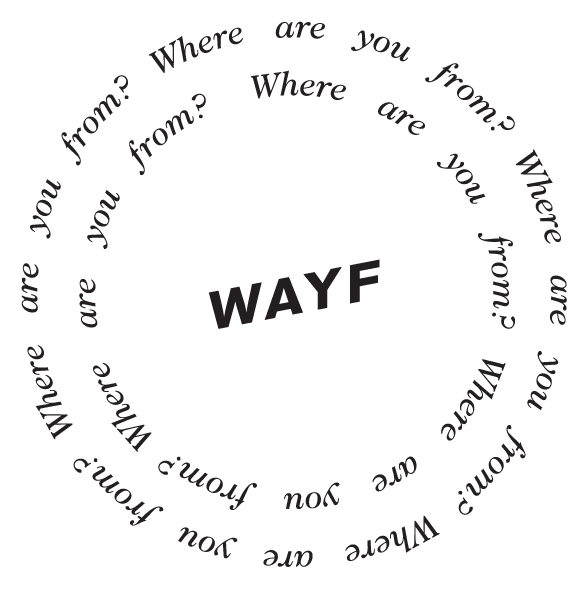Milo Hartill
‘Where are you from?’ is always a question that I try to approach with a sense of humour. Will I give them the answer I know they want, informing them of my heritage/ethnicity, allowing them to understand why an English speaking person very clearly has melanin threaded through her skin, and coarse 4C curls, or sometimes I’ll give them the more accurate answer - that I’m from here.
9 out of 10 times I will respond with the latter, being the shit stirrer I am. I kind of enjoy listening to people scramble to explain away their question, before arriving at the dreaded, but sometimes entertaining response, ‘No-where-are-you-really-from?’.
I can remember the first time I was asked this question, and responding with what I thought made sense at age 6, and then being confused by their confusion when I answered with Perth, Western Australia. After all, what else would I respond with? That is where I’m from. Did they know something I didn’t know? Were they referring to the hospital I was born in? What 6 year old knows that? Technically I’m from my house? Were they referring to my mother's womb? How specific were they expecting me to go? I was a C-section…
No matter which of these avenues my brain went down, one thing was pretty clear, the questioning was pretty invasive, and frankly too personal for a conversation starter – don’t you think?
As I have grown older and more attuned to (often unintentional) microaggressions, I learnt that most people are in fact wanting to know where my parents are from, and how I resulted in this ‘melanated’ look.
My mother is of English heritage, Australian-born and raised, and my father is Botswana-born and raised; making my ethnic background African-Australian. However, this does not mean I am from both Africa and Australia. I was conceived in Australia. I was born in Australia. I have always lived somewhere in Australia. I am FROM Australia.
This question can bring on a feeling of being the “other,” which is conflicting. I am just as ‘Australian’ as anyone else, especially the people asking these questions. In theory I understand the premise: people want to know more about me, but would they ask this question of someone who didn’t look like me? I’m not sure they would.
It also shows a lack of understanding when it comes to the language they are speaking; the words they use and their true meaning. It’s quite ironic. Perhaps it would be less offensive, if they asked what my ethnic background was? Or where my parents were from? Or if before asking any of these questions people looked within and examined their role in perpetuating these ideas about race and belonging? What makes them feel entitled to ask these questions? Maybe if they considered what they are really trying to find out, and why they need to know, the question wouldn’t be asked in the first place?
Being an intersection of two cultures, as a young African-Australian, this question brings on a feeling of not knowing where I truly do belong, as though I’m seen by ‘Australian people’ as belonging in another culture. And, sometimes, being seen by Africans as more belonging more within white-Australian setting, and then being expected explain the many facets of both to one another!
‘Where are you from’ infers expectation, privilege and invasion. Think before you ask ‘Where are you from’.

